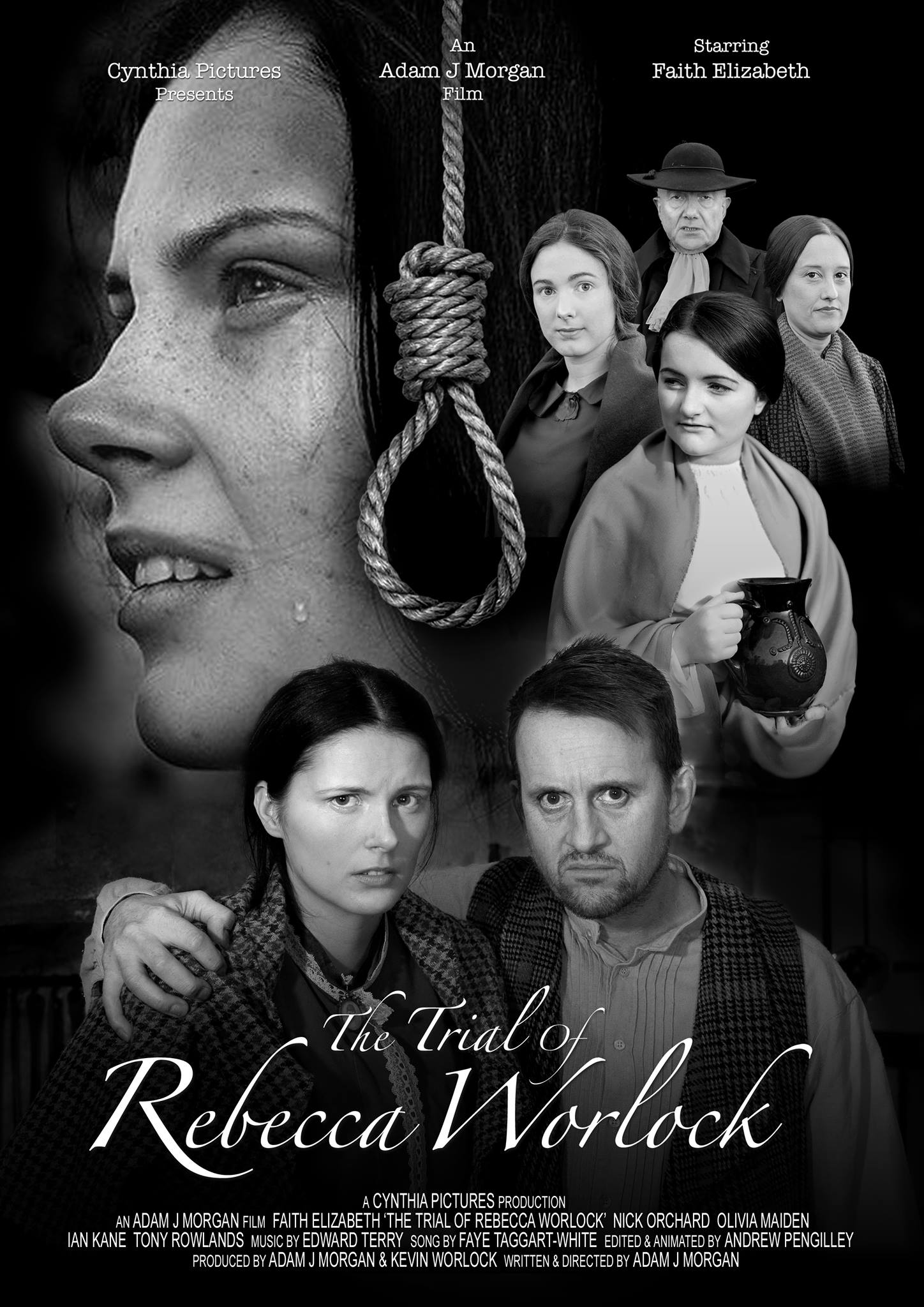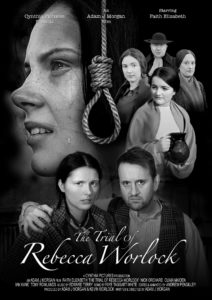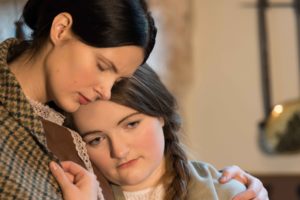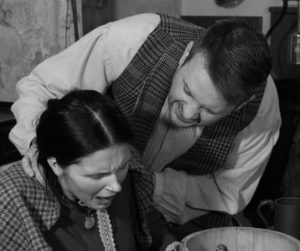
Short Film Review “The Trial of Rebecca Worlock”
WATCH THE TRAILER HERE
First, the Recap:
When a deed is done by any hand, there is with it the accompanying truths, the reasoning, the catalyst by which it was chosen to be enacted. The responsibility of said deed must be taken, on all accounts, by the one who carried it out. Yet, what happens when the event which transpires creates a hesitancy to claim ownership of it? It is the year 1820, and the Parish of Bitton, England is about to reel from an unanticipated occurrence. One of its residents, Rebecca Worlock (Faith Elizabeth), has committed murder. The victim, her own husband Thomas Worlock (Nick Orchard), has apparently imbibed poison via his beer.
As the trial begins and the incident is recounted by many involved in some indirect way, including Rebecca’s daughter Mary Ann (Olivia Maiden), a local citizen Mary Jenkins (Bethan Langford), and neighbor Sarah Butler (Alli Thomas), Rebecca fervently maintains her innocence of the poison’s origin or how it became mixed with her husband’s drink. Yet, as further scrutiny of Rebecca’s home life ensues and more of the circumstances are revealed that would appear to motivate a desire within her to see harm come to Thomas, it soon becomes a bitter reality of not only her guilt, but a question of justification for what she chose to do.
Next, my Mind:
For his fourth short film outing, writer/director/co-producer Adam J. Morgan continues to maintain a well-founded consistency in overall quality execution while re-visiting the historically-themed narrative direction, plus black and white visual presentation, two previous efforts were created in, hence successfully delivering this 20-minute, true story-based effort with conviction and ever-growing skill. Beyond just the black and white filming technique here, Morgan also chooses to employ several brief sequences of old-style animation which actually fits perfectly into the proceedings as they unfold, and simply adds some unique character to the overall mood being showcased. These choices, along with exploring themes including hidden truth, the weight of decision, the question of rationale, and the ramifications of regret, all form a wonderfully cohesive, straightforward, and impactful dramatic tale that addresses more than relevant issues and situations which are just as needed to be dealt with today as back then.
Elizabeth very much embodies the harried and overwhelmed demeanor of an embattled woman in her role as Rebecca, someone who has been driven to do one of the most heinous crimes under the law, yet tries her level best to be seen as the victim herself. Despite the mounting evidence that more than speaks to actuality, she listens to others explain how their part in the unfolding events took place, even as the ever-increasingly distraught manner she displays grows as the inevitability of what’s to come takes over. At the end, her love for her children and deep remorse is sincere and heartfelt, finally accepting the verdict and its punishment. Elizabeth portrays all of this excellently. Solid support is provided by Orchard as Rebecca’s overbearing husband Thomas, Maiden as their daughter Mary Ann, Langford as an unwitting “accomplice”, and Thomas as the Worlock’s neighbor and witness to Thomas’ post-poisoning condition. Additional turns from Tony Rowlands as the Prosecutor and Ian Kane as Rebecca’s confessor Rev. W.H. Ellicombe and found here, plus the voiceover talents of Pippa Alice Stephens lend the narration to events as well.
In total, “The Trial of Rebecca Worlock” continues Morgan’s winning streak in the indie short film arena and one should honestly not expect him to slow down any time soon. It’s the creativity and willingness to yes, try new styles, genres, and techniques, yet find a way to stick with what works for you best that is being well established by Morgan and Co., and ideally will keep going that way for many years to come.
As always, this is all for your consideration and comment. Until next time, thank you for reading!




